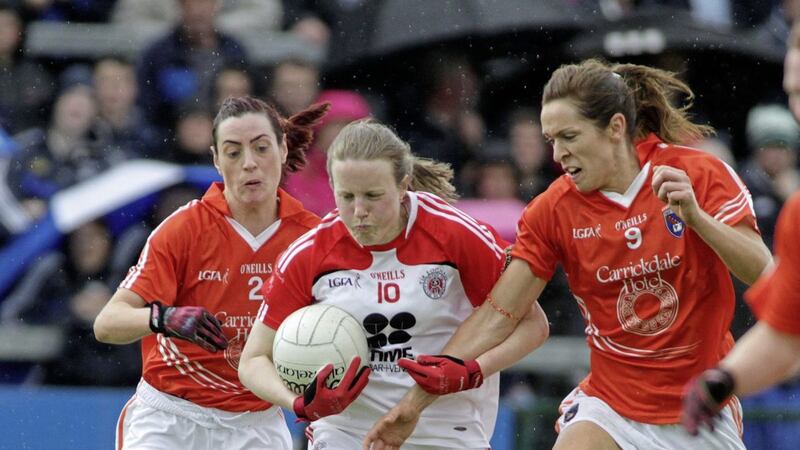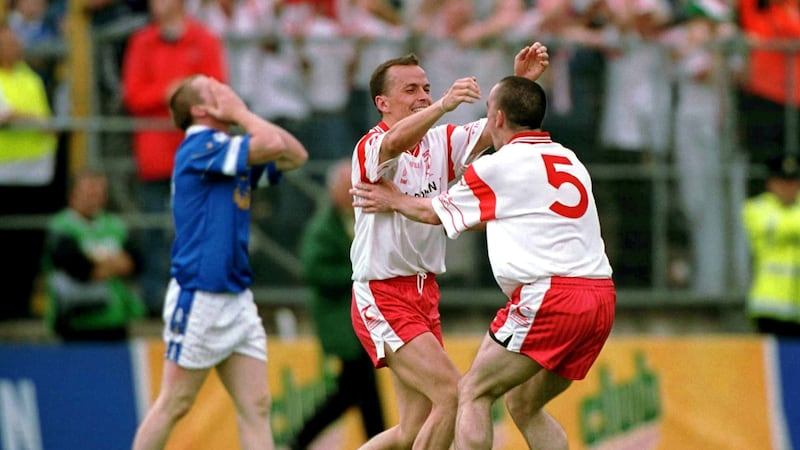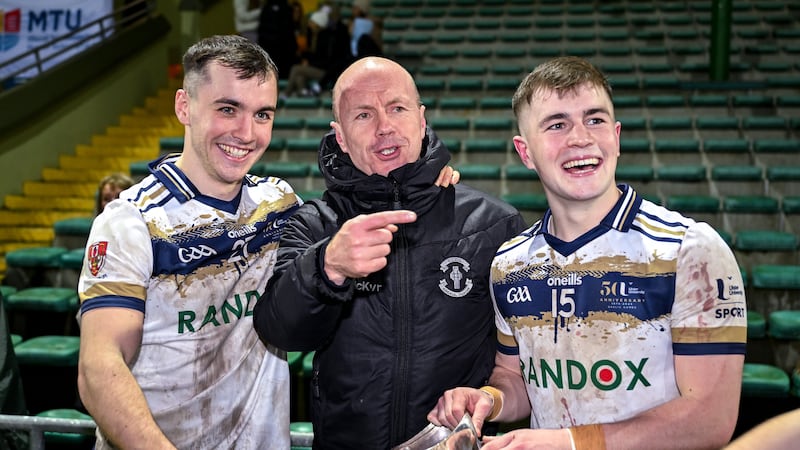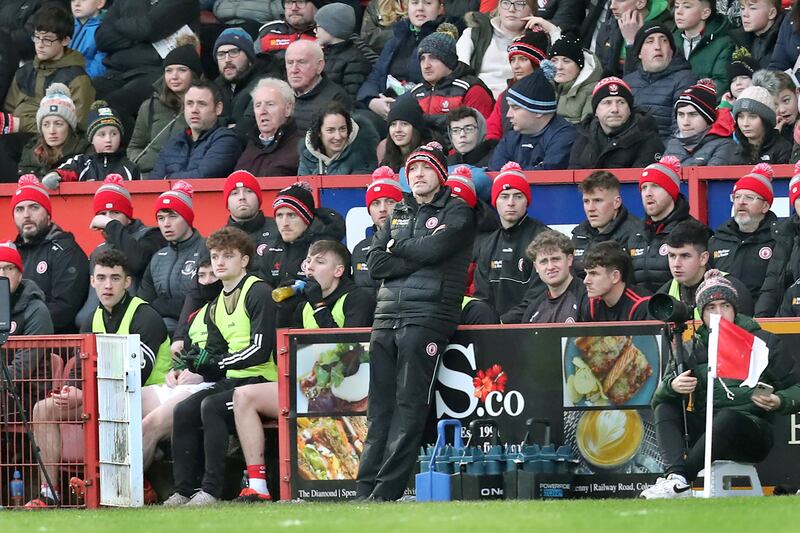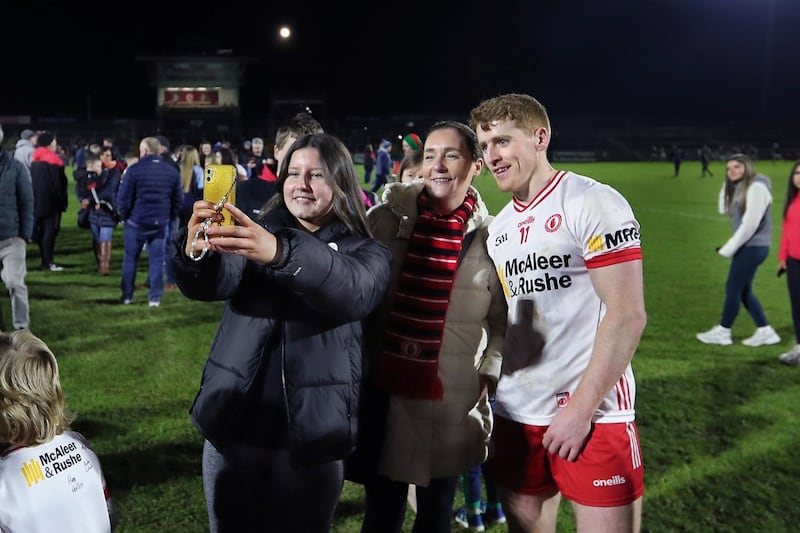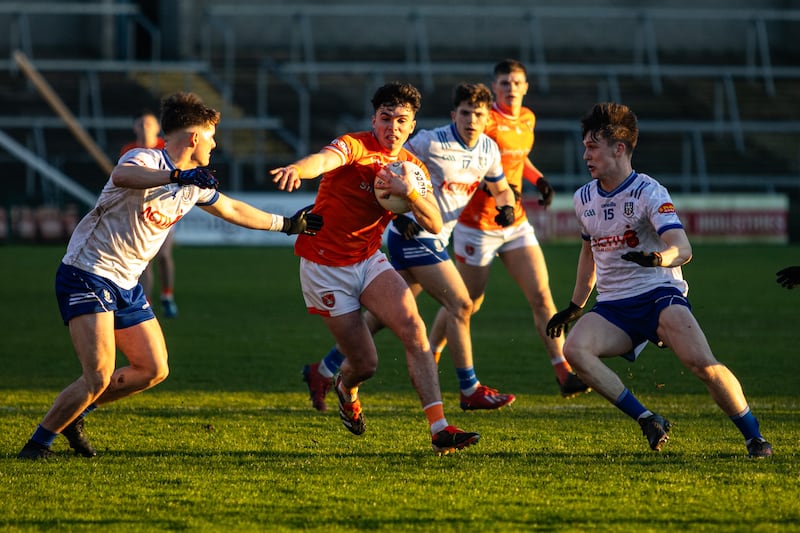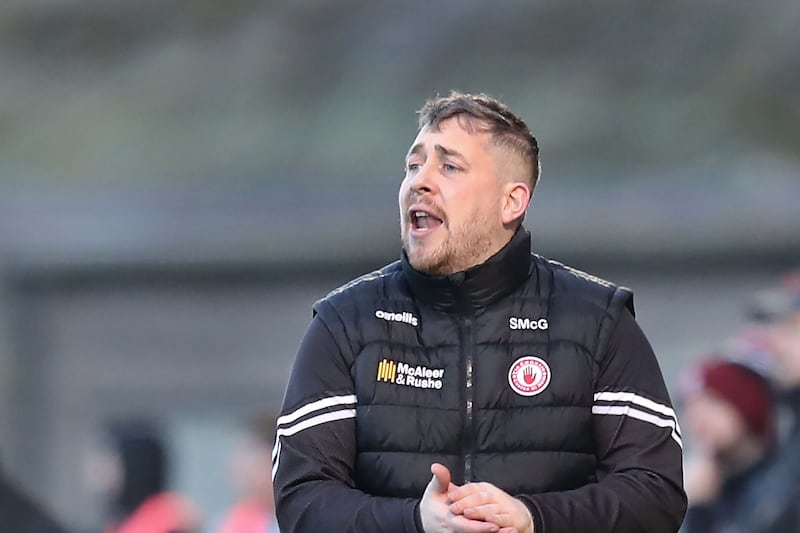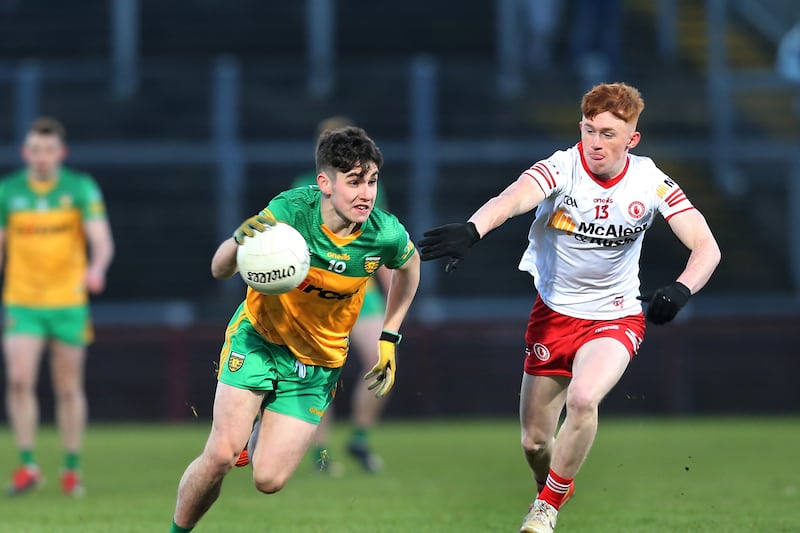LONG-serving Tyrone forward Gemma Begley has mixed emotions ahead of her side's All-Ireland Intermediate Championship final against Meath in Croke Park on Sunday.
She has yet to taste victory on the hallowed turf of 'Headquarters' having lost there on three previous occasions - in 2005 against Dublin in a senior semi-final played before their county men's All-Ireland quarter-final replay against Dublin, the 2010 senior final to Dublin and last year's intermediate decider to Tipperary. She would really love to change that statistic come Sunday afternoon as she admits that while she would give anything to be in this position, counting down the final few days to an All-Ireland final, at the same time she is feeling apprehensive because she so badly wants to leave Dublin on Sunday an All-Ireland winner.
"It's my fourth time playing in Croke Park .The first two times we were hammered out the gate and last year was another defeat so it probably brings more apprehension for me," said the two-time Allstar.
"I was there watching the men in their final and I could feel the sick feeling in the bottom of the your stomach thinking I can get beat again if I don't get this right, but it's still a magical place no matter how many times you go to it."
Begley, who has played in all but one of Tyrone's six championship games and hit 2-17, draws her own comparison with Galway camogie stalwart Therese Maher, who played for the Tribeswoman for 16 years before finally winning her first All-Ireland in 2013 at the sixth attempt.
"It's good to be back where you want to be. 51 weeks ago you would give anything to be back here. We probably haven't put a 60 minutes performance together, which would be the worrying thing but it has kept us grounded and it t's been good to have that extra bit of focus.
"You're hoping everyone plays to their peak and then comes together as a team performance on the day. I think Therese Maher who played for Galway camogie lost five finals before winning her sixth and she was like 33 and I am getting as bad as her at this stage," laughed Begley.
On a more serious note, Begley is immersed in the wider echelons of the GAA as project co-ordinator for the WGPA (Women's Gaelic Players Association).
The WGPA was launched in January 2015 to represent the interests of inter-county players; the elite amateur athletes who play at the top level of these sports. The players body is overseen by a 7 member executive and membership has grown to over to over 1,350 current players and an ever-growing number of past players.
On its website, it says "Our aim is to improve their experiences both and off the field of play; since our launch we have provided supports and services including a 24/7 member support line, third level scholarships, leadership programme, personal coaching, career guidance and membership affinity scheme."
The increase of mental health problems in young people, even elite athletes playing at top level of their sport, is worrying but what is 'a positive' is the increase in the number of people reaching out and asking for help or coming to the WGPA and asking for help for a team-mate.
Begley, who has been involved with WGPA since its initiation, says there has been an increase in numbers using the dedicated support line.
"This year we have found that more players are coming to and to say they are worried about a team-mate. Girls are more renowned to talk to one another more than maybe boys would and while that is great, we also need to make sure we are there to intervene and support the team-mate," said Begley.
"There definitely has been a rise in terms of players contacting the 24/7 helpline - it's a third party, confidential helpline, but there are also more people approaching us as individuals. You would never fob them off to just go and ring the helpline, you would look at a referral directly to a counsellor or help them get the right kind of support they need.
"The main thing is the internal communication and increasing willingness for people to speak up and ask for help and to be able to cater for someone who is worried about a team-mate that we are here to actually come and ask for us help.
"It is great to be able to provide it but I know there is far more stuff out there that we haven't broached and that's maybe a lack of research into all aspects of women in sport. There is just not the same body of investment coming into researching the lifestyles and problems faced by female athletes, which is something the WGPA would like to tackle in the future but what we do have at present is definitely, I hope, having a positive impact on players and their playing experience."
